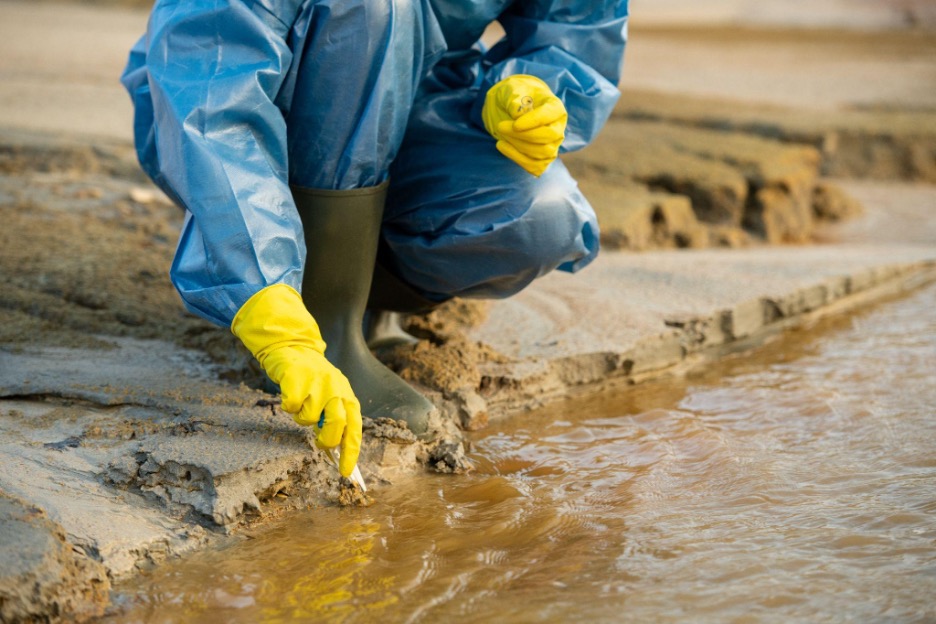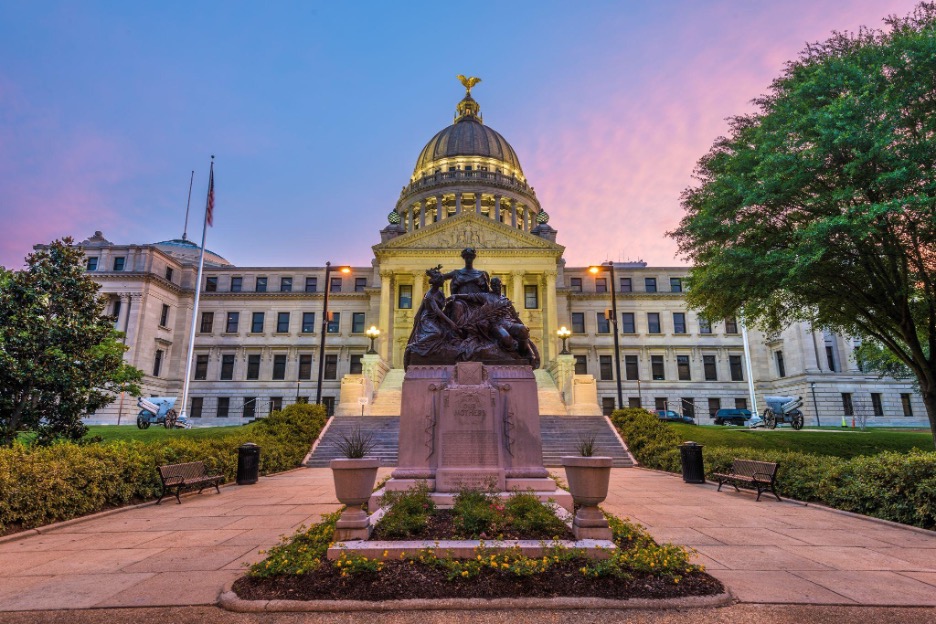“The infrastructure in Jackson has not and has never really been truly addressed”

In late August, the main treatment facility responsible for providing safe water to residents of Jackson, Miss., failed due to torrential rain and subsequent flooding. As a result of the treatment plant being inoperable, citizens of Jackson were left without water for simple necessities such as bathing, flushing toilets, and drinking.
Jackson is Mississippi’s state Capitol – and it is 82 percent Black. Unfortunately, these latest infrastructure challenges are not new. This is the third time in the past two years that Jackson residents have been left without clean drinking water. The fact that neighboring predominantly white communities still have drinking water combined with the predominantly white makeup of the regional water authority points to a clear systemic cause of water scarcity in Jackson: racism.
This month, ecoWURD host Charles Ellison spoke to Dr. Adrienne Hollis, Vice President of Environmental Justice, Climate and Community Revitalization, Conservation at the National Wildlife Federation and graduate of Jackson State University about the water crisis in Jackson.
“Sadly. this is not surprising because racism is real,” Hollis said. “This isn’t the first time; this is just the first time people are turning their attention to Jackson.”
When looking at this issue, it’s clear that the seeds for this disaster were planted as early as the Jim Crow era. “The infrastructure in Jackson has not and has never really been truly addressed because after white flight the money went elsewhere,” Hollis said. “That’s to be expected when you’re dealing with racism.”
Residents are using their voices to bring attention to the water crisis. Many took to social media to show the effects of the plant shutting down. Journalist Molly Minta posted a video that went viral of dark brown water flowing from a faucet. Journalist Cheyanne Daniels explained to Charles Ellison during an episode of Reality Check that she was drawn to this issue because of what she saw happening on social media.
She then wrote an article for The Hill connecting what’s happening in Mississippi to broader and deeper environmental racism that we consistently see as we move deeper into the climate crisis.
Whose Fault Is This?

Environmental racism is a systemic issue and, when it comes to deep-rooted issues, it’s easy to shift blame and attribute dysfunction entirely to the system. This does not mean that no one should be held accountable for the current state of Jackson’s water. Mississippi Democrats and Republicans are tossing blame back and forth, and the state and city governments are doing the same. Dr. Hollis said she believes the state is at fault for not allocating money properly – especially since it hasn’t dedicated any of the $525 million it’s received from the federal government to fix water infrastructure to Jackson. Even with additional federal commitments from the Biden administration being promised, there’s a sense Mississippi’s Republican governor, Tate Reeves, and its Republican-dominated state legislature, is not prioritizing the state capital and its residents.
In Daniels’ article for The Hill, community members made clear to her that they were aware of the failure on the government’s part at multiple levels, but at this point, are more acutely concerned with how to fulfill their basic life needs during this crisis. “We just want clean water. We just want our children to have safe drinking water,” one Jackson resident told Daniels. Buck passing and partisanship continue to distract from the real problem at hand: There are people without access to clean drinking water.
What’s it going to take?
Right now Jackson still does not have clean drinking water. There are water bottles being passed out every day, which is a very temporary solution. The Jackson water crisis has been declared a federal emergency and federal dollars have been allocated to help build infrastructure. Hollis and Daniels both alluded to the fact that when this has happened in the past there has never been enough money that makes it to Jackson in order to prevent a disaster like this from happening again.
How could the state’s government let this happen to a state capital? And would this have happened if Jackson was 82 percent white instead of Black? This is not just a problem with infrastructure, this is a problem that spans centuries and is woven into the fabric of our government. This is environmental racism, plain and simple.
What is it going to take for policymakers and public officials to realize that this problem has a much more complex and difficult solution than just fixing one water treatment facility? Jackson still does not have clean drinking water, and E. Coli was recently found in the waters of West Baltimore. How many Black and brown communities are going to suffer before we begin to take environmental racism seriously?
Water is needed to survive and access to clean water should not be a luxury. This is bigger than just one city – it’s a human rights issue. We must remember that this crisis is a result of racism.



